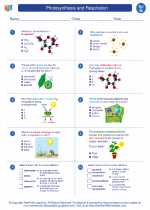Social Sustainability
Social sustainability refers to the ability of a society to meet the needs of its members in the present while also preserving the well-being of future generations. It involves creating and maintaining a healthy and equitable society that promotes the overall well-being of individuals and communities.
Key Concepts
- Equity: Social sustainability emphasizes the fair distribution of resources, opportunities, and benefits within a society.
- Community Health: It focuses on promoting the physical, mental, and emotional well-being of communities.
- Diversity and Inclusion: Social sustainability aims to create inclusive and diverse communities that respect and value the contributions of all individuals.
- Quality of Life: It seeks to enhance the overall quality of life for present and future generations.
Challenges and Solutions
Addressing social sustainability involves tackling various challenges such as poverty, inequality, discrimination, access to healthcare and education, and community well-being. Solutions may include implementing policies that promote equal opportunities, providing access to essential services, supporting community development initiatives, and fostering a culture of inclusivity and respect.
Examples
Examples of social sustainability initiatives include affordable housing programs, healthcare accessibility efforts, education equity campaigns, community empowerment projects, and diversity and inclusion policies in workplaces and public spaces.
Study Tips
- Understand the interconnectedness of social, economic, and environmental sustainability.
- Explore case studies of successful social sustainability projects and their impact on communities.
- Engage in discussions about social justice, equity, and community well-being.
- Consider the ethical implications of social sustainability decisions and actions.
- Stay informed about current events and social issues that relate to sustainability.
◂Science Worksheets and Study Guides Seventh Grade. Photosynthesis and Respiration

 Worksheet/Answer key
Worksheet/Answer key
 Worksheet/Answer key
Worksheet/Answer key
 Vocabulary/Answer key
Vocabulary/Answer key
 Vocabulary/Answer key
Vocabulary/Answer key
 Vocabulary/Answer key
Vocabulary/Answer key
